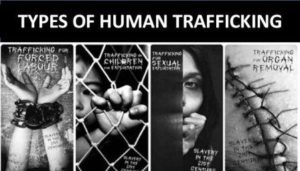For over 400 years, more than 15 million men, women and children were the victims of the tragic slave trade. It was one of the darkest chapters in human history.
In year 1843, the Indian Slavery Act was passed in British India under East India Company rule, which outlawed the sale of any person as a slave and anyone buying or selling slaves would be booked under the Indian Penal Code, with offence carrying strict punishment.
But still slavery exists in a disguised form. Forced labour, domestic worker, sexual, sexual worker, forced marriage and bonded labour are the modern form slavery and it is still prevalent in India and mostly in the states like Bihar, Jharkhand, Jammu and Kashmir, Rajasthan, Assam, Manipur, Uttar Pradesh, West Bengal etc.
In this modern form of slavery a person is forced to work because of their debts and poverty. They work in very bad and dangerous conditions, and are unaware of their rights and laws made for them. They are exploited at their work places.
According to Indian data of 2004, more than 40 lakh men, women and children are working as a domestic worker and according to the data of National Records Bureau of 2014, around 5.5 thousand cases have been applied for human trafficking.
According to global slavery report, more than 1.83 crore people are living as slaves in India.
On every 25 March, the International Day of Remembrance of the Victims of Slavery and the Transatlantic Slave Trade offers the opportunity to honour and remember those who suffered and died at the hands of the brutal slavery system. The International Day also aims to raise awareness about the dangers of racism and prejudice today.
And to abolish the slavery entirely we also need to pay attention to these modern forms of slavery. Education and awareness can be a major tool to tackle this problem. We need to come together for making slavery a past not as our present.
Prepared by Seema Kumari


